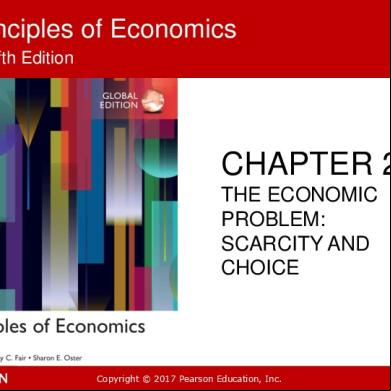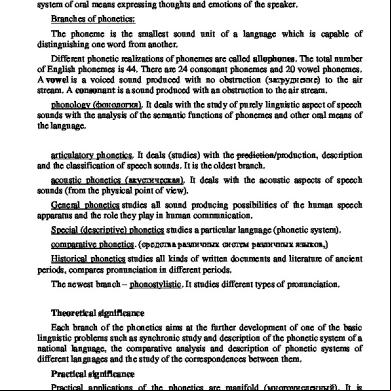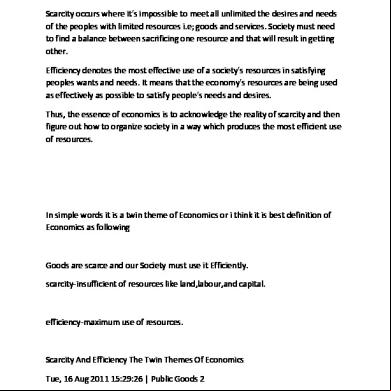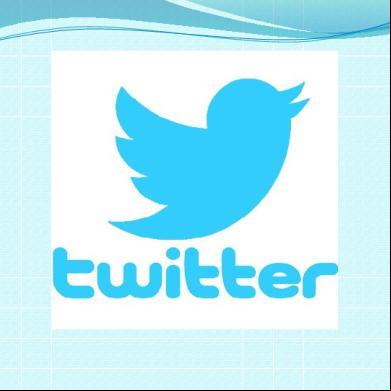Economics As A Science Of Scarcity And Choice 396j5u
This document was ed by and they confirmed that they have the permission to share it. If you are author or own the copyright of this book, please report to us by using this report form. Report 2z6p3t
Overview 5o1f4z
& View Economics As A Science Of Scarcity And Choice as PDF for free.
More details 6z3438
- Words: 990
- Pages: 4
Economics as a Science of Scarcity and Choice: Robbins Definition of Economics: Marshall’s definition of economics remained an article of faith with all economists from 1830 to 1932. However, with the publication of Robbins book “Nature and Significance of Economic Science” (1932), there developed a fresh controversy in regard to the definition of economics. Lionel Robbins, after criticizing the definitions given by the Classical and Neo-classical economists, gave his own definition of Economics. According to him: "Firstly, the definition of Economics given by him is superior to that of others because it does not contain any reference of the term material or welfare. Secondly,it applies as much to the case of an isolated individual as to the complicated net working of society. Thirdly, it raises the status of Economics to that of Science Fourthly, it makes Economics a positive science which deals only with facts, It forbids the economists to any value judgment of what is good or bad, right or wrong, etc.". Lionel Robbins claiming his definition Economics precise, scientific and superior, defines Economics book ‘Nature and Significance of Economics Science' (Published in 1932): "a science which studies human behavior as a relationship between ends and scarce means which have alternative uses". This definition is based on the following four pillars: • Human wants or ends are unlimited • The ends vary in importance • The means are scarce • Means have alternative uses
MARSHALL’S WELFARE DEFINITION OF ECONOMICS Alfred Marshall, a pioneer neoclassical economist, reoriented Economics towards the study of mankind and provided economic science with a more comprehensive definition. Marshall, in his famous book ‘Principle
of Economics’ published in 1890, defines economics as follows:
"Political Economy or Economics is a study of mankind in the ordinary business of life. It examines that part of individual & social action which is most closely connected with the attainment & with the use of material requisites of well-being". This definition clearly states that Economics is on the one side a study of wealth and on the other and more important side “a part of the study of man”. Marshall’s followers like Pigou, Cannon and Baveridge have also defined Economics in of material welfare.
Alfred Marshall, a pioneer neoclassical economist, reoriented economics towards the study of humanity and provided economic science with a more comprehensive definition. Marshall, in his famous bookPrinciples of Economics published in 1890, defines economics as follows: "Political Economy or Economics is a study of mankind in the ordinary business of life. It examines that part of individual & social action which is most closely connected with the attainment & with the use of material requisites of well-being". The following are the implications of this definition: 1. Economics is a study of mankind;
2. Human life has several aspects—social, religious, economic and political—but economics is concerned only with the economic aspect of life; 3. Promotion of welfare is the ultimate goal, but the term welfare is used in a narrow sense to meet material welfare only. Besides Marshall, there are other economists who have defined economics in of welfare. According to Pigou, "the range of enquiry becomes restricted to that part of social welfare that can be brought directly or indirectly into relation with the measuring rod of money". According to Edwin Cannan, "the aim of political economy or Economics is the explanation of the general causes on which the material welfare of human beings depend". Marshall clearly explains that economic activity is different from other activity. For example, If a student visits a friend who is ill, it is a social activity, If a person give his vote in an election, it is a political activity. If a person goes to church/temple it is a religious activity. Marshall says that economic activity is different from above mentioned activities. A farmer going to the field or a worker going to the factory to work is an economic activity —they are working to earn money. With that money they
will buy things to satisfy their wants. In other words, economics deals with wants, efforts and satisfaction. In the words of Marshall, "man earns money to get material welfare." Marshall gives importance to welfare and man. This definition came to be called the welfare definition.
Definition of Economics •
Adam Smith defined economics as the study of the wealth of a nation, with reference to the four categories discussed in his second book. The full title of this book can be regarded as his definition of the word economics: "An inquiry into the nature and causes of the wealth of nations."
Adam smith wrote a book in 1776 whose title was "Wealth of Nations". In his book he discussed the word 'wealth' through its four aspects: production of wealth, exchange of wealth, distribution of wealth and consumption of wealth. There fore it can be said according to Adam Smith: "Economics is a science of wealth". Wealth means goods and services transacted with the help of money. Lets discuss four aspects of wealth; first one is production of wealth it shows as to how goods and services are produced. Goods and services are produced by the combination of four factors of production i.e. land, labour, capital and organization. Second aspect is exchange of wealth there are many procedures of goods and services in a society. Every procedure produces goods and services more than his personal requirement. The exchange of wealth enables everyone in the society to satisfy his multiple wants. Third aspect is distribution of wealth, which means the distribution of goods and services among different sections or individuals of a society. As known by explanation of exchange of wealth that procedures of goods and services exchange the surplus wealth with each other through out the year. The last and forth aspect is consumption of wealth that is u the utility of goods and
services for the satisfaction of wants is called the consumption of wealth. Anonymous
MARSHALL’S WELFARE DEFINITION OF ECONOMICS Alfred Marshall, a pioneer neoclassical economist, reoriented Economics towards the study of mankind and provided economic science with a more comprehensive definition. Marshall, in his famous book ‘Principle
of Economics’ published in 1890, defines economics as follows:
"Political Economy or Economics is a study of mankind in the ordinary business of life. It examines that part of individual & social action which is most closely connected with the attainment & with the use of material requisites of well-being". This definition clearly states that Economics is on the one side a study of wealth and on the other and more important side “a part of the study of man”. Marshall’s followers like Pigou, Cannon and Baveridge have also defined Economics in of material welfare.
Alfred Marshall, a pioneer neoclassical economist, reoriented economics towards the study of humanity and provided economic science with a more comprehensive definition. Marshall, in his famous bookPrinciples of Economics published in 1890, defines economics as follows: "Political Economy or Economics is a study of mankind in the ordinary business of life. It examines that part of individual & social action which is most closely connected with the attainment & with the use of material requisites of well-being". The following are the implications of this definition: 1. Economics is a study of mankind;
2. Human life has several aspects—social, religious, economic and political—but economics is concerned only with the economic aspect of life; 3. Promotion of welfare is the ultimate goal, but the term welfare is used in a narrow sense to meet material welfare only. Besides Marshall, there are other economists who have defined economics in of welfare. According to Pigou, "the range of enquiry becomes restricted to that part of social welfare that can be brought directly or indirectly into relation with the measuring rod of money". According to Edwin Cannan, "the aim of political economy or Economics is the explanation of the general causes on which the material welfare of human beings depend". Marshall clearly explains that economic activity is different from other activity. For example, If a student visits a friend who is ill, it is a social activity, If a person give his vote in an election, it is a political activity. If a person goes to church/temple it is a religious activity. Marshall says that economic activity is different from above mentioned activities. A farmer going to the field or a worker going to the factory to work is an economic activity —they are working to earn money. With that money they
will buy things to satisfy their wants. In other words, economics deals with wants, efforts and satisfaction. In the words of Marshall, "man earns money to get material welfare." Marshall gives importance to welfare and man. This definition came to be called the welfare definition.
Definition of Economics •
Adam Smith defined economics as the study of the wealth of a nation, with reference to the four categories discussed in his second book. The full title of this book can be regarded as his definition of the word economics: "An inquiry into the nature and causes of the wealth of nations."
Adam smith wrote a book in 1776 whose title was "Wealth of Nations". In his book he discussed the word 'wealth' through its four aspects: production of wealth, exchange of wealth, distribution of wealth and consumption of wealth. There fore it can be said according to Adam Smith: "Economics is a science of wealth". Wealth means goods and services transacted with the help of money. Lets discuss four aspects of wealth; first one is production of wealth it shows as to how goods and services are produced. Goods and services are produced by the combination of four factors of production i.e. land, labour, capital and organization. Second aspect is exchange of wealth there are many procedures of goods and services in a society. Every procedure produces goods and services more than his personal requirement. The exchange of wealth enables everyone in the society to satisfy his multiple wants. Third aspect is distribution of wealth, which means the distribution of goods and services among different sections or individuals of a society. As known by explanation of exchange of wealth that procedures of goods and services exchange the surplus wealth with each other through out the year. The last and forth aspect is consumption of wealth that is u the utility of goods and
services for the satisfaction of wants is called the consumption of wealth. Anonymous










